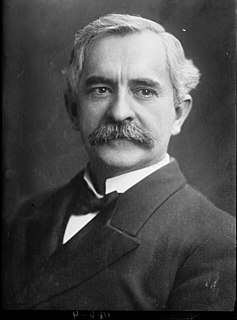A Quote by E. A. Bucchianeri
If Christ is God, He cannot sin, and if suffering was a sin in and by itself, He could not have suffered and died for us. However, since He took the most horrific death to redeem us, He showed us in fact that suffering and pain have great power.
Related Quotes
For, after all, if it is from Christ that we are to learn how God relates himself to sin, suffering, evil, and death, it would seem that he provides us little evidence of anything other than a regal, relentless, and miraculous enmity; sin he forgives, suffering he heals, evil he casts out, and death he conquers. And absolutely nowhere does Christ act as if any of these things are part of the eternal work or purposes of God.
The Savior's suffering in Gethsemane and His agony on the cross redeem us from sin by satisfying the demands that justice has upon us. He extends mercy and pardons those who repent. The Atonement also satisfies the debt justice owes to us by healing and compensating us for any suffering we innocently endure.
Evil is neither suffering nor sin; it is both at the same time, it is something common to them both. For they are linked together; sin makes us suffer and suffering makes us evil, and this indissoluble complex of suffering and sin is the evil in which we are submerged against our will, and to our horror.
God uses suffering to purge sin from our lives, strengthen our commitment to Him, force us to depend on grace, bind us together with other believers, produce discernment, foster sensitivity, discipline our minds, spend our time wisely, stretch our hope, cause us to know Christ better, make us long for truth, lead us to repentance of sin, teach us to give thanks in time of sorrow, increase faith, and strengthen character.
Within each of us exists the image of God, however disfigured and corrupted by sin it may presently be. God is able to recover this image through grace as we are conformed to Christ. Just as the figure of David lay hidden within the marble, discernible only to the eye of its creator, so the image of God (however tarnished by sin) lies within us, see and known by God Himself. Yet God loves us while we are still sinners. He doesn't have to wait until we stop sinning. Acceptance of His love is a major step along the road that leads to our liberation from the tyranny of sin.
What has the Cross left in each of us? You see, it gives us a treasure that no one else can give: the certainty of the faithful love which God has for us. A love so great that it enters into our sin and forgives it, enters into our suffering and gives us the strength to bear it. It is a love which enters into death to conquer it and save us.
Repentance out of mere fear is really sorrow for the consequences of sin, sorrow over the danger of sin — it bends the will away from sin, but the heart still clings. But repentance out of conviction over mercy is really sorrow over sin, sorrow over the grievousness of sin — it melts the heart away from sin. It makes the sin itself disgusting to us, so it loses its attractive power over us. We say, ‘this disgusting thing is an affront to the one who died for me. I’m continuing to stab him with it!’
Faith stands or falls on the truth that the future with God is more satisfying than the one promised by sin. Where this truth is embraced and God is cherished above all, the power of sin is broken. The power of sin is the power of deceit. Sin has power through promising a false future. In temptation sin comes to us and says: "The future with God on his narrow way is hard and unhappy, but the way I promise is pleasant and satisfying." The power of sin is in the power of this lie.































